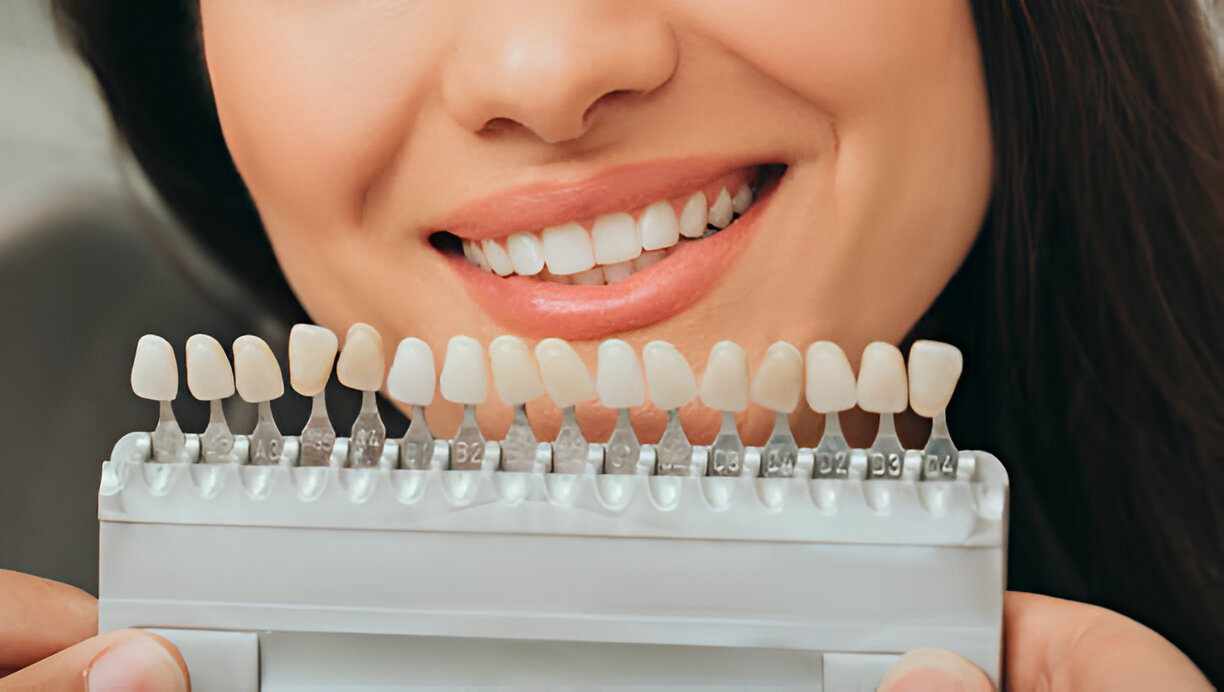A Smile Makeover with Dental Veneers
Your smile plays a big role in how you feel about yourself and how others perceive you. A bright, even smile can boost confidence, while discoloured teeth, chips, or gaps can make people feel self-conscious. For those looking to enhance the appearance of their teeth, dental veneers offer a long-term solution that mimics natural teeth.
Veneers are custom-made shells that fit over the front surface of the tooth to improve its colour, shape, and alignment. Whether you’re considering porcelain veneers or composite veneers, this popular cosmetic dentistry procedure can transform your smile with minimal intervention.
At Brisbane Dentist, Malouf Dental, you can find expert advice and personalised dental services to help you achieve a natural smile. In this guide, we’ll cover the veneer placement process, the veneer cost, their longevity, and who can benefit most from this dental treatment.
What Are Dental Veneers?
Dental veneers are thin, custom-made shells placed over the front surface of the tooth to improve its appearance. They are a common cosmetic dentistry solution for those wanting a smile makeover without invasive procedures.
There are two main types of veneers.
- Porcelain veneers are known for their durable, stain-resistant qualities. They closely resemble natural teeth but require the removal of a thin layer of enamel. This ensures they sit properly and bond securely to the tooth’s surface.
- Composite veneers are made from composite resin, an affordable option. These are sculpted directly onto the tooth in one visit, making them a quicker alternative. They do not last as long as porcelain veneers, but they can be repaired easily.
People choose dental veneers for many reasons. Some want to cover discoloured teeth when teeth whitening does not work. Others need to restore chipped or broken teeth or improve minor misalignments.
The Veneer Placement Process: What to Expect
Getting dental veneers is a step-by-step process that requires careful planning. Understanding each stage can help you feel prepared, whether you choose porcelain or composite veneers.
Consultation
A visit to a cosmetic dentist is the first step in getting dental veneers. During this initial appointment, the dentist will examine your teeth, discuss your goals, and determine if porcelain veneers or composite veneers are the right option. X-rays may be taken to assess the tooth structure and overall oral health.
Tooth preparation
For porcelain veneers, a small amount of enamel is removed from the tooth’s surface to create space for the final veneers. This ensures they sit properly without looking bulky. If needed, the dentist may place temporary veneers while the permanent ones are being made. Composite veneers, on the other hand, usually do not require much preparation.
Moulding and customisation
Once the teeth are prepared, a mould or digital scan is taken. This is sent to a dental laboratory, where the custom-made veneers are crafted. Composite resin veneers are shaped directly onto the front surface of the tooth at the dentist’s office, eliminating the need for a dental lab.
Placement
When the new veneers are ready, the dentist will check their shape, colour, and fit. After making any necessary adjustments, they are bonded to the front surface of the teeth using a strong adhesive. This step ensures a secure fit that feels and looks natural.
Most patients experience little to no discomfort during the procedure. Some sensitivity may occur after the veneer placement, but this usually subsides within a few days.
Are Veneers Permanent? Understanding Longevity & Maintenance
Many people wonder if dental veneers are a permanent solution. While they are designed to last for years, their lifespan depends on the material and how well they are cared for.
How long do veneers last?
Porcelain veneers are highly durable and can last between 10 to 15 years when properly cared for. They are also stain-resistant than composite resin veneers. Composite veneers, while affordable, typically last 5 to 7 years before needing replacement.
How to care for veneers
Taking care of dental veneers is essential to maintaining their appearance and longevity. Proper oral hygiene and regular dental visits can help keep their teeth in good condition.
- Brush and floss daily to maintain healthy teeth and gums.
- Avoid biting into hard foods like ice or nuts to prevent damage.
- Visit your cosmetic dentist regularly to check the condition of your veneers.
Can veneers be removed or replaced?
Porcelain veneers require some enamel removal, making them an irreversible treatment. If they become damaged or worn out, they will need to be replaced with new veneers. Composite veneers are less invasive and can be removed or repaired easily.
Additional considerations
Veneers offer long-lasting results, but regular dental visits are important to check for wear and tear. According to Healthdirect Australia, routine check-ups help ensure your veneers remain in good condition. (Source: healthdirect.gov.au)
How Much Do Veneers Cost?
The cost of veneers in Australia depends on several factors, including the type of material used, the number of teeth treated, and the expertise of the cosmetic dentist performing the procedure.
Porcelain vs composite veneers
Porcelain veneers are known for their durability and stain-resistant properties. According to the Australian Dental Association (ADA), the median price for porcelain veneers is around A$1,800 per tooth. (Source: adan.ada.org.au)
Composite resin veneers are a budget-friendly option, typically costing A$500 per tooth. These veneers are applied in one visit, but they may not last as long as porcelain veneers. (Source: adan.ada.org.au)
Other factors affecting cost
Several elements influence veneer cost, including:
- Dentist’s expertise – Highly experienced cosmetic dentists may charge higher fees.
- Geographic location – Costs may vary depending on whether the clinic is in a metropolitan or regional area.
- Additional dental treatments – Procedures like teeth whitening or cosmetic contouring may be required before veneer placement.
Since dental veneers are considered a cosmetic dentistry treatment, they are not typically covered by health services like Medicare. However, some private insurance plans may offer partial rebates under dental services coverage.
For an accurate quote, it’s best to book a consultation with a cosmetic dentist who can assess your needs and provide personalised pricing.
Are Veneers Right for You? Should You Get Them?
Dental veneers can provide a significant improvement in the appearance of your teeth, but they are not suitable for everyone. Understanding who benefits most from veneers can help you decide if they are the right choice.
Who benefits most from veneers?
Veneers are often recommended for people looking for a smile makeover without major orthodontic work. They can help address several cosmetic concerns, including the following:
- Discoloured teeth that do not respond to teeth whitening treatments.
- Chipped or broken teeth that need to be restored.
- Minor misalignment or gaps that do not require braces.
Pro Tip: For those wanting a long-lasting solution, porcelain veneers offer durability and a natural smile. Composite veneers, while affordable, are better for short-term corrections.
Who may not be suitable?
Some people may not be ideal candidates for veneers due to their dental condition or habits. Veneers may not be the best option if:
- Teeth are severely misaligned, requiring orthodontic treatment first.
- Gum disease or tooth decay is present, as these issues must be treated first.
- Teeth grinding is a concern, as excessive force can damage veneers over time.
If veneers are not suitable, other treatment options, such as crowns or cosmetic contouring, may be recommended.
Transforming Your Smile with Veneers
Choosing dental veneers is a significant step in achieving a brighter, confident smile. They can improve the appearance of your teeth by addressing discolouration, chipped teeth, and minor misalignment.
For those seeking a long-term solution, porcelain veneers provide a durable, stain-resistant option that closely resembles natural teeth. Composite veneers, on the other hand, offer an affordable alternative with a quicker application process.
While veneers are custom-made to enhance your smile, proper care is essential to maintaining their longevity. Regular check-ups with a cosmetic dentist, good oral hygiene, and avoiding habits like biting hard objects will help keep them in good condition.
If you are considering veneers, booking a consultation with a Malouf Dental in Brisbane is the best way to explore your options. They can guide you through the process, discuss treatment options, and ensure you achieve a natural smile that suits your needs.






